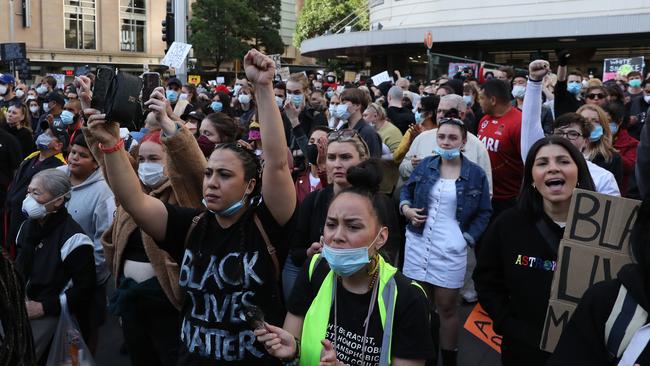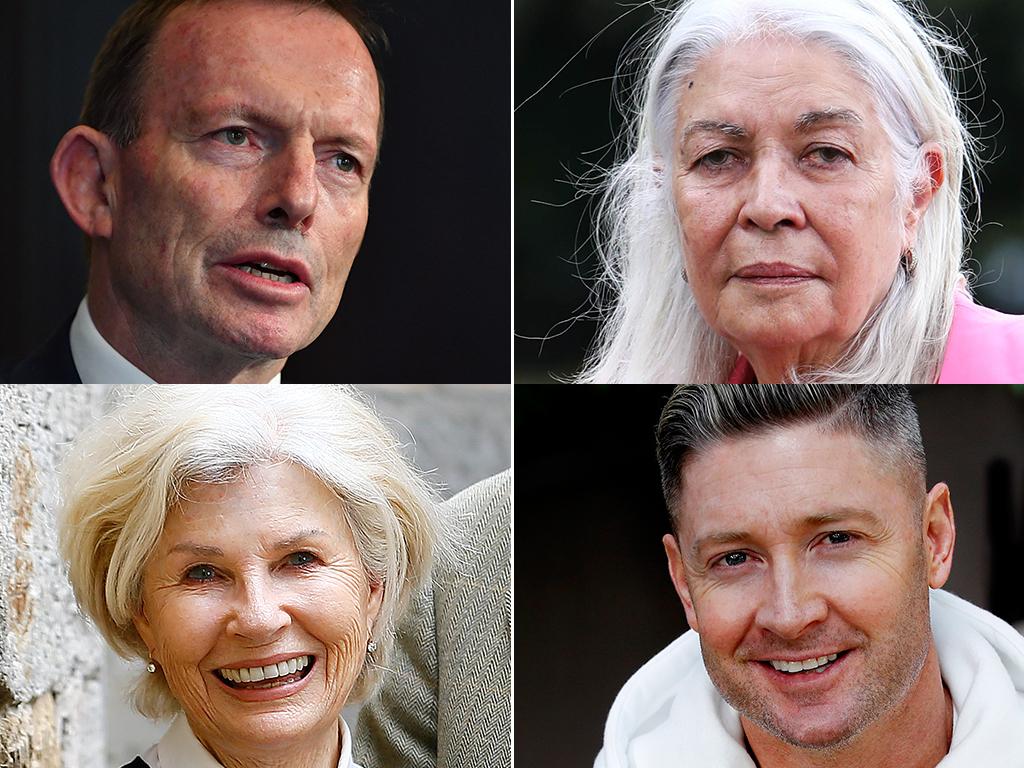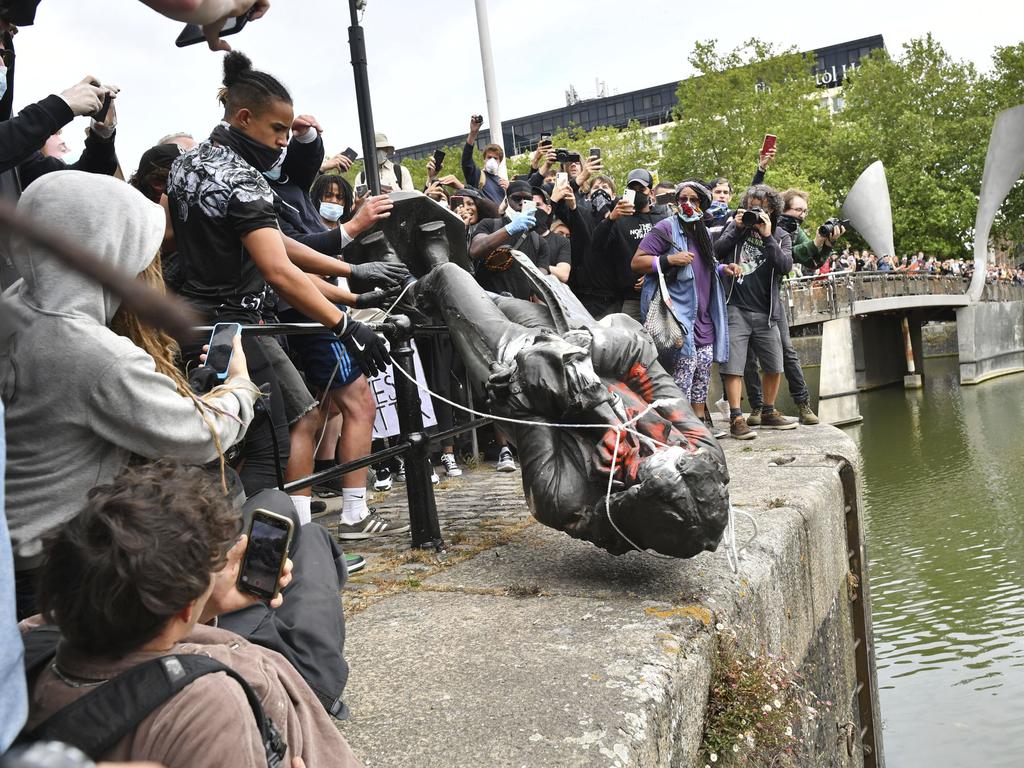Coronavirus: Black Lives Matter protests make mockery of COVID-19 lockdowns

Many people now regard the remaining lockdown rules as a farce and want to disregard them. That could be risky. But the protests, and the collective failure of the states to prevent and control them, let Australians down.
One way or another, the protests will be a turning point in Australia’s fight against coronavirus. On one hand, if the gatherings trigger a spike in cases, as the nation’s health officers fear, further opening of the economy and the lifting of state border restrictions might be delayed. If so, consequences for workers, the unemployed, struggling businesses, government revenue and the ability of taxpayers to continue supporting those in need would be dire. The Parliamentary Budget Office has projected the legacy of the virus will be additional net debt of up to $620bn by the end of the decade. The budget deficit is expected to peak at up to $200bn next financial year and remain in the red until 2030.
On the other hand, if no significant spikes in cases emerge in the next fortnight, many will regard the case for an immediate lift of all remaining restrictions as compelling. Regardless of the dangers — evident in rising infection totals overseas — demands will come thick and fast for a return to full crowds, with or without masks, at major sporting events, conferences, in cinemas and theatres, at churches, weddings, funerals, baptisms, parties and in restaurants, clubs and bars. It may help the cause of public health that most, but by no means all, of those who protested were young; although young people can spread the virus to those who are more vulnerable. It is doubtful whether many of those who attended understand the impact of a severe recession, which their actions might have exacerbated. The poor and disadvantaged, including indigenous people, would suffer severe hardships, with governments’ capacity to help limited after months of costly support and stimulus spending.
The democratic right to protest is important. And as we have long argued, policymakers, in consultation with indigenous leaders, must improve the administration of justice and reduce indigenous prison rates, which exceed those of African-Americans in the US. The deaths of at least 432 Aborigines in custody since the 1991 royal commission is a national shame. The need to address such imperatives, however, does not justify untimely, reckless protests, just as the nation is edging close to eradicating COVID-19.
After weeks of nannying, the shillyshallying of state premiers towards the protests beggared belief. On Sunday, WA Premier Mark McGowan insisted state borders would remain closed “for a considerable period’’ amid fears the protests could spread the virus. Yet he has not banned a Black Lives Matter rally planned for his state next Saturday, but urged protesters to maintain physical distancing. Experience in the eastern states, and the US, shows such pleas are readily forgotten as crowds build in the emotion of such events. In a pertinent warning, WA indigenous state Treasurer Ben Wyatt pointed out that indigenous people faced elevated risks from coronavirus.
NSW Premier Gladys Berejiklian did the right thing on Friday when she declared the Sydney march illegal. And on Friday night, a NSW Supreme Court judge ruled in favour of an application by NSW Police Commissioner Mick Fuller to block the Sydney CBD protest. The will of the elected government was thwarted on Saturday, however, by the NSW Court of Appeal. Fifteen minutes before the Sydney march was due to start, it authorised the event. That display of judicial activism did not uphold the public interest. Barely two months ago, NSW police were driving off road in Rushcutters Park in Sydney’s inner east to move on a few people sitting on the grass. On Saturday, they stood by as thousands massed in close contact. The inconsistencies are farcical.
In Victoria, where Premier Daniel Andrews declared in April that “playing golf is not worth someone’s life” and year 3-10 students only return to school this week, police let protesters off scot-free and fined organisers. Queensland and South Australian protesters also got off lightly. Supposedly too nervous to let “southerners’’ in to holiday, as local tourism operators go broke, Queensland Premier Annastacia Palaszczuk failed to stop 30,000 turning out in Brisbane. The lack of firm instructions to police from state leaders, insisting on crowd control and safe spacing, or, better still, blocking the protests, was problematic.
Now the reckoning starts. The Australian Health Protection Principal Committee meets on Monday to consider the dangers of new COVID-19 outbreaks and possible delays in easing social restrictions after the rallies. Australians have been patient, good-hearted and disciplined during the COVID-19 crisis. The protests made a mockery of their sterling efforts.






Viewers of television news on Saturday could only stare in indignation, wondering if they had missed an official announcement that the COVID-19 pandemic and all restrictions were over. As police looked on, tens of thousands of protesters jammed city streets, squares and bridges, ignoring social distancing and rules limiting gatherings to 50 or 20 people. Workers who have lost jobs, nursing home residents missing their families, small business owners who have watched enterprises shrivel after years of hard work, hospital patients going without visitors, students whose study and sporting hopes have been upended and those prohibited from travelling to or from states such as Queensland can only wonder: Why one rule for the protesters and another for the rest of us?